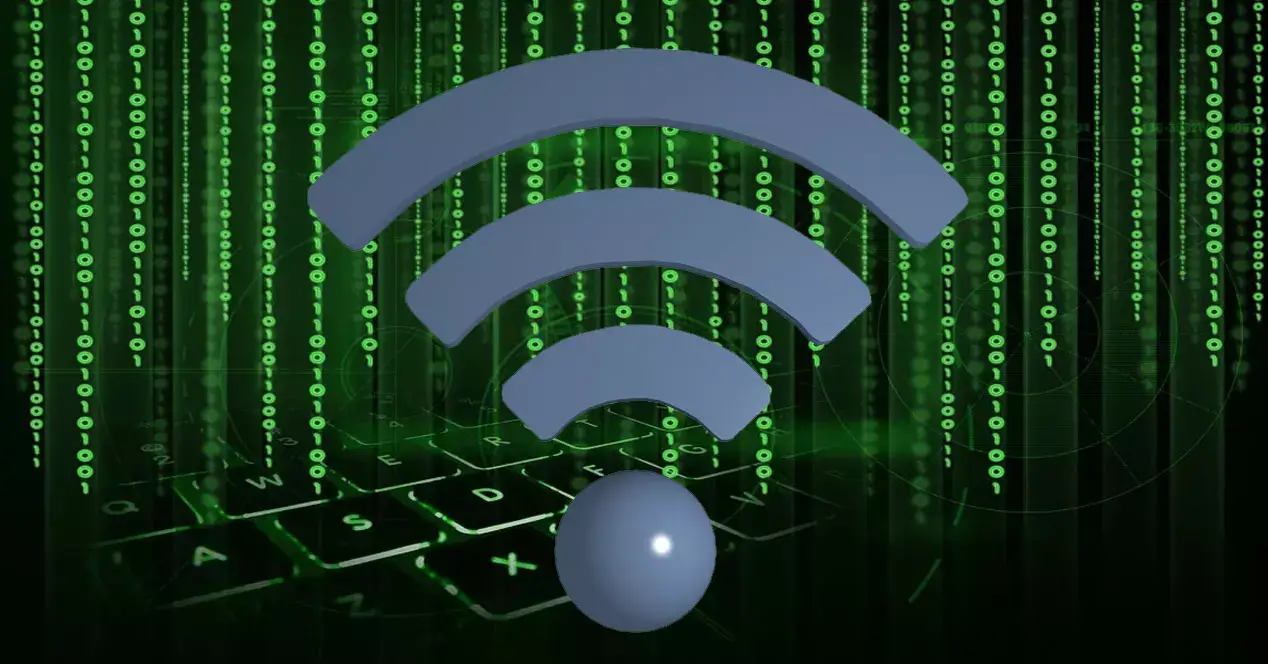Browsing the Internet wirelessly is becoming more and more common and we have more compatible devices. This is very useful, it works well in most cases, but it also has complications. In this article we are going to talk about howWi-Fi can leak your datawithout you realizing it and even without having to do anything. It is a problem that affects mobile devices.
WiFi leaks data
It is a study that they have recently carried out from the University of Hamburg, in Germany. They call itWi-Fi tracking, and basically it is a standard process that is part of the communication between the mobile and the access point, which could be, for example, a router to which we connect.
What happens is thatmobile phonesconstantly search for available Wi-Fi networks, as long as the function is activated. This will make it easier to connect quickly, find a network that works better, etc. As soon as it detects one that it can connect to, it connects. This has its advantages and also disadvantages.
What is happening? Many stores use Wi-Fi tracking this feature totrack the position and movementof customers. Of course, it uses MAC addresses anonymously to comply with privacy regulations. The problem is when something goes wrong and information leaks.
According to this study, in the stores analyzed almost one in four, specifically 23.2% of the cases, this Wi-Fi tracking transmitted the SSIDs of the networks to which those devices were connected at some point. Logically, thisexposes privacy, since it is data that belongs to the history of the device.
Furthermore, anexperiment carried outby these researchers in a highly traveled area of Germany, leaked more than 250,000 tracking requests. In just a few hours they were able to get 58,489 SSIDs from those random people walking by. They even contained numeric strings with 16 or more digits that could be the initial passwords of popular routers.
Moreover, in these subsets of captured SSID data, they also found names, email addresses, vacation rentals where they connected, etc. This type of sensitive sequences were filtered even thousands of times during the hours of the experiment carried out.
Link data for insights
These same security researchers note thatnewer versionsof iOS and Android make tracking more difficult. The problem is when different data is combined, such as the signal intensity, the sequence number, the network capacity… With all this they can manage to record data and obtain a digital footprint.
However, these security researchers emphasize the importance of having up-to-date operating systems, always having the latest versions and improving protection as much as possible. That’s the first security measure they recommend using to prevent Wi-Fi from leaking data that may be sensitive.
Yet another tip isto remove SSIDsfrom Wi-Fi networks that we’ve previously connected to. This is what can leak at any given time and make our privacy compromised without us noticing. Therefore, from time to time deleting all the wireless networks to which we have previously connected is a good action.
It is also possible to disable tracking requests from the advanced settings on the mobile phone. But this could make it take longer to connect, so it’s a balance between potential privacy risks and usability.
In short, as you have seen, you could be filtering data through Wi-Fi without realizing it. It is true that the latest versions of operating systems have improved and will continue to improve this aspect, but there are still some fringes. You can increase privacy primarily by keeping devices up to date.




